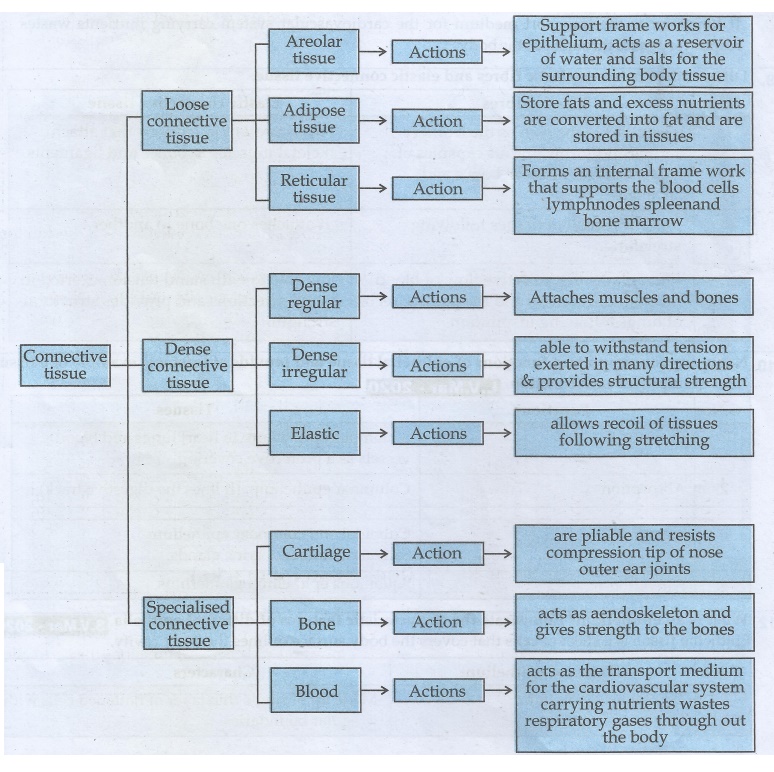Tissue Level of Organisation | Zoology - Answer the following questions | 11th Zoology : Chapter 3 : Tissue Level of Organisation
Chapter: 11th Zoology : Chapter 3 : Tissue Level of Organisation
Answer the following questions
Zoology
Tissue Level of Organisation
Evaluation
6. Some epithelia are pseudostratified. What does this mean?
These
cells are columnar but unequal in size. Though the epithelium is single layered
but it appears to be multi-layered because the nuclei lie at different levels in
different cells.
7. Differentiate white adipose tissue from brown adipose tissue.

White
adipose tissue
i.
They have less number of Mitochondria.
ii.
They store nutrients.
Brown
adipose tissue
i.
They have more numbers of mitochondria.
ii.
It is used to heat the blood stream to warm the body.
8. Why blood is considered as a typical connective tissue?
Blood
is the fluid connective tissue. Containing plasma red blood cells white blood cells
and platelets.
It
functions as the transport medium for the cardiovascular system carrying nutrients
wastes respiratory gases through out the body.
9. Differentiate between elastic fibres and elastic connective tissue.

Elastic
Fibres
i.
It is found in the skin as the leathery dermis and forms fibrous capsules of organs
such as kidneys bones and cartilages.
ii.
It allows recoil of tissues following stretching.
iii.
It maintains the pulsative flow of blood through the arteries and the passive recoil
of lungs following inspiration.
Elastic
connective tissue
i.
This is present in tendons that attach skeletal muscles to bones and ligaments.
ii.
It attaches one bone to another.
iii.
It is able to with stand tension exerted in many directions and provides structural
strength.
10. Name any four important functions of epithelial tissue and provide at least one example of a tissue that exemplifies each function.
Functions
: Tissues
1.
Protection : Squamous epithelium. In
heart lungs and blood vessels as a protective covering.
2.
Absorption : Columnar epithelium. (It
lines tire digestive track)
3.
Secretion : Cuboidal and columnar epithelium.
Salivary gland endocrine glands.
4.
Filteration: Squamous epithelium glomerulus.
11. Write the classification of connective tissue and their functions

12. What is an epithelium? Enumerate the characteristic features of different epithelia.
Epithelial tissue is a sheet of cells that covers
the body surface or lines the body cavity.
Types
of epithelium
1. Squamous epithelium : Characters: Made up of single thin layer
of flattened cells with irregular boundaries.
2. Cuboidal epithelium : Characters: Made up of
single layer of cube like cells.
3. Columnar epithelium : Characters: Made up of
single layer of tall cells with round to oval nuclei at the base.
4. Ciliated epithelium : Characters: It bears
cilia on their free surfaces.
5. Nonciliated epithelium : Characters: There is
no cilia on the free surfaces of columnar epithelium
6. Pseudo - stratified epithelium
:
Characters: Colomnar but unequal
in size
7. Compound epithelium : Characters: Made up of more than one
layer of cells.
Related Topics